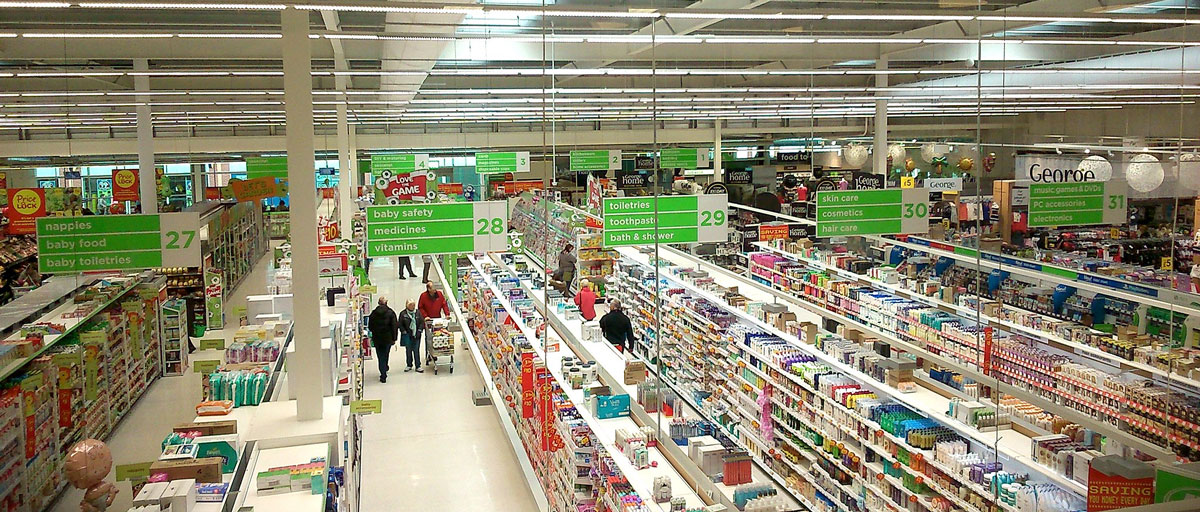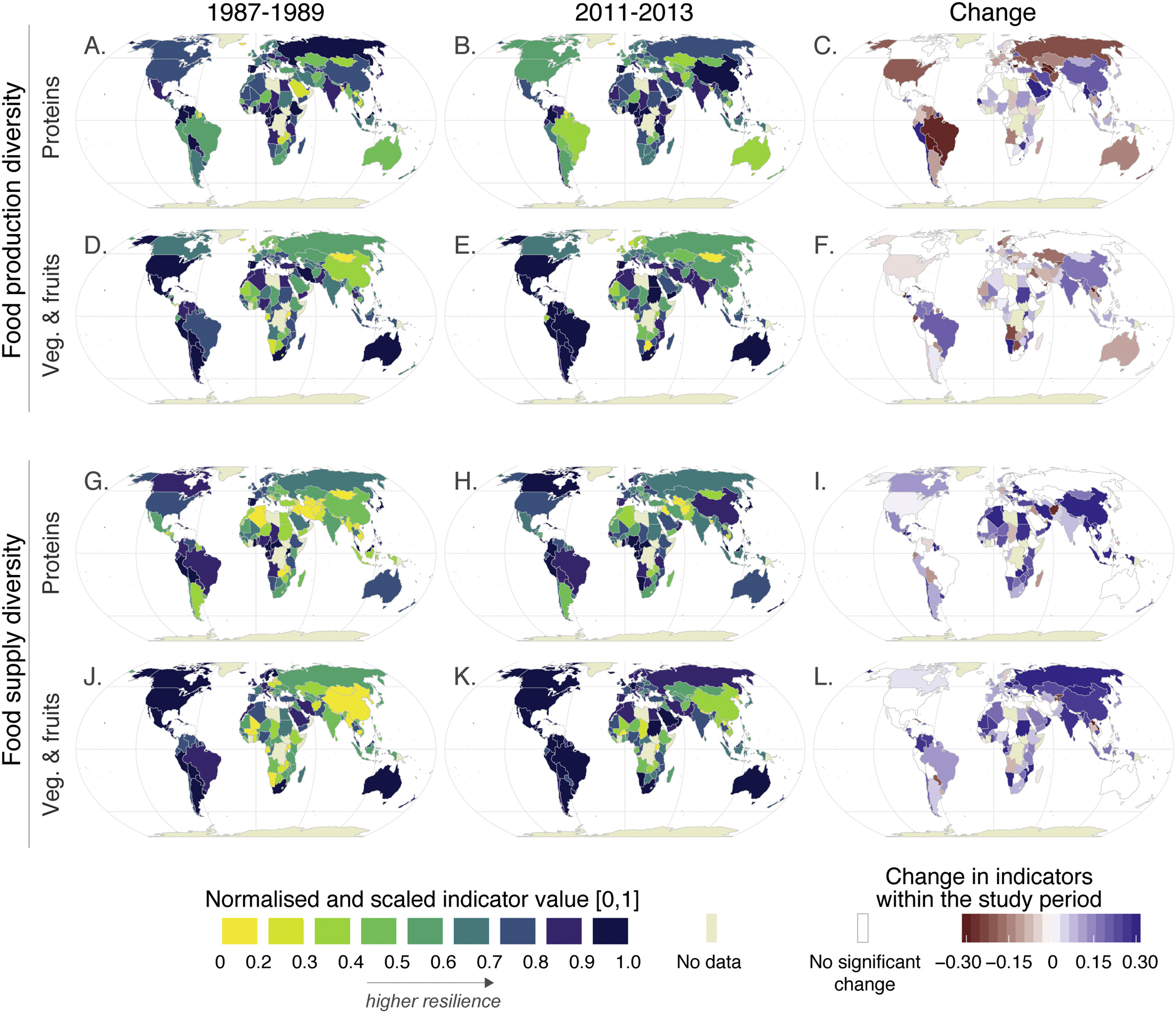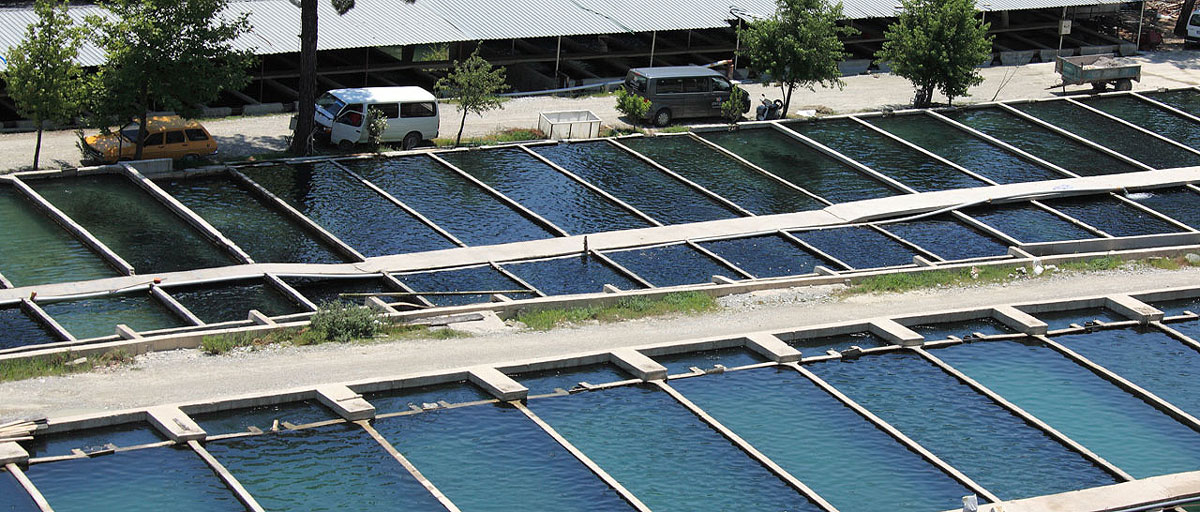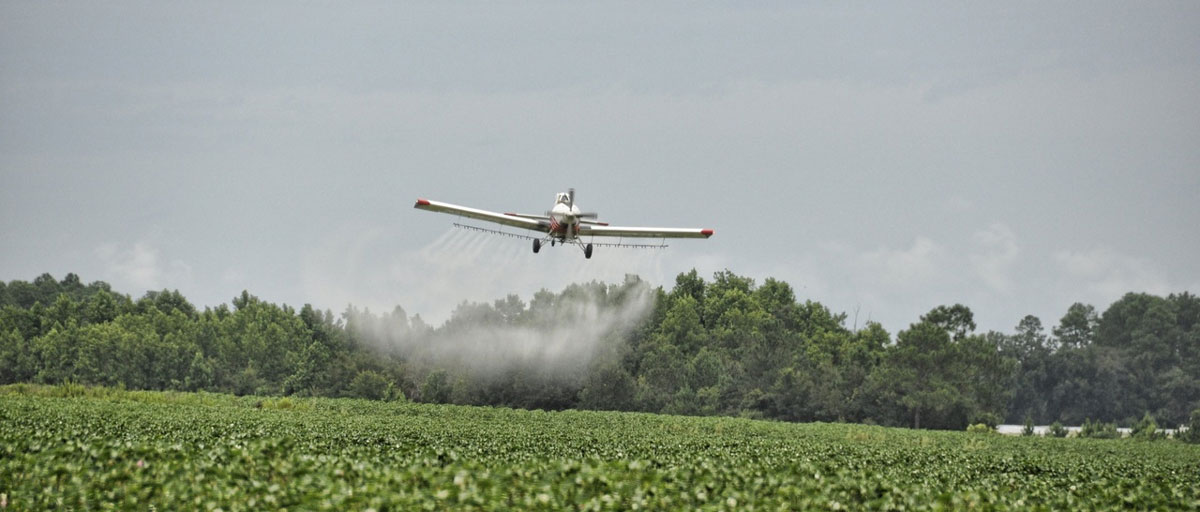Bildtext får vara max två rader text. Hela texten ska högerjusteras om den bara ska innehålla fotobyline! Photo: B. Christensen/Azote
FOOD TRADE
Global food system vulnerable from reliance on fewer exporting countries

Consumers, particularly in the western world, now enjoying increased access to a variety of proteins, fats, fruits and vegetables, and year-round. However, this also leads to many countries relying on fewer import partners. This could elevate their exposure to future shocks in the food system. Photo: E. Brown/Flickr
- Between 1987 and 2013, food supply diversity increased significantly for most of the world's population
- Increased reliance on trade decreases resilience as more people across the world become exposed to ‘shocks’ like price spikes, export bans, or interruptions induced by climate change
- Greece, Spain and Italy are bucking the trend with higher diversity of production and supply, and number of import partners
The world is enjoying a richer diet but most countries increasingly depend on food imports. That should worry many of them
ALL EGGS IN ONE BASKET: Trade and globalization have been increasing rapidly for decades. That certainly includes food trade, with consumers, particularly in the western world, now enjoying increased access to a variety of proteins, fats, fruits and vegetables, and year-round. It makes for a varied and nutritious diet but also creates a complacency that all food is always available.
In a collaboration with Aalto University, Swedish Agricultural University and Stanford University, centre researchers Miina Porkka, Cibele Queiroz and Max Troell have made a global scale assessment of food trade networks and nutritional diversity. Their work has been published in the journal Global Food Security
The results indicate that, between 1987 and 2013, food supply diversity increased significantly for most of the world's population. However, dependency on imports also increased, with many countries relying on fewer import partners.
This could have significant consequences.
It is alarming that in many countries the studied resilience aspects systematically declined, elevating their exposure to future shocks in the food system.
Matti Kummu, lead author

Food production (A–F) and food supply diversity (G–L) for years 1987–1989 and 2011–2013 as well as the change between these time steps calculated based on a linear regression model. Click on illustration to access scientific article.
Methodology
The researchers used food balance and trade data by the FAO to construct four indicators that capture trade-related aspects of national food supply over the past three decades: diversity of food production of different commodities, diversity of food supply of different commodities from both local and imported sources, independency of food supply from imports, and connectivity given by the number of major trade partners. These indicators represent two basic principles of a resilient system: maintaining diversity and redundancy, and managing connectivity.
Diversity allows systems to compensate for the loss or failure of some components with other functionally redundant components. Well-connected systems can overcome and recover from local disturbances faster by “importing” sources of resilience from elsewhere, but on the other hand, high dependency on imported sources of resilience exposes systems to the spread of external disturbances.
The four indicators were calculated for four nutritional components: dietary energy (kcal), protein (g), fat (g), and quantity of vegetables & fruits (g). These components provide different nutritional functions and are the basic pillars of WHO diet recommendations.
Kummu, M., Kinnunen, P., Lehikoinen, E., Porkka, M., Queiroz, C., Röös, E., Troell, M., Weil. C. 2020. Interplay of trade and food system resilience: Gains on supply diversity over time at the cost of trade independency. Global Food Security, Volume 24, March 2020, 100360










